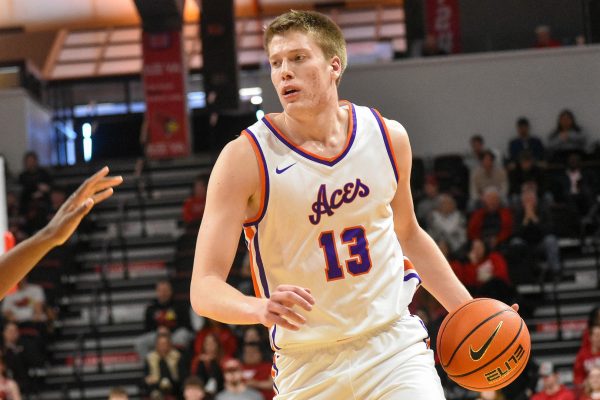Best courses for Illinois students seeking careers in sports
June 13, 2023
When it comes to classes at Illinois, students have a multitude of options to choose from. There are well over 500 classes in the course catalog, from general education requirements to fulfilling major requirements.
However, one specific style of course that students can choose from provides students the opportunity to learn about or even play sports.
There are countless choices, such as bowling, ice skating or basketball. The recreation room in the Illini Union has a bowling alley where bowling sections meet and go bowling, which can fulfill a physical education requirement. For students looking at physical activity relating to sports, these classes can be found in the kinesiology category.
If students are looking to make it in the sports world for a career, there are courses that can prepare them for it. Courses like ADV 314: Sports PR focus on how public relations work in the sports world. This class is filled with lessons where students act as PR firms in real-world scenarios, as well as learn about crisis management and how sporting organizations work through them. For example, students can come up with solutions to scandals in the real sports world.
There’s also a general major for students looking to make it in the sports world. Students can major in the recreation, sport and tourism degree, with the focus being in sports management. This is a common major for students looking to work in professional sports.
For students who choose such a major, the first semester will mostly begin with foundational classes for RST. The introductory classes vary from RST 100: Recreation, Sport, and Tourism in Modern Society and RST 101: Orientation to Recreation, Sport and Tourism, both of which teach students about sports and their place in modern society, along with an “orientation” into the topic.
The 200-level classes that students are recommended to take first semester refer to the nitty-gritty of the major at an early point in a student’s post-secondary education, specifically the leadership and management portions of the field.
The second semester for sports management majors dives into the ethics and foundations of how sports management works, and will provide students with more knowledge and basics about how the sports world is expected to operate.
From there, students will go on their own paths with electives, along with the required courses that continue to build upon the foundations already covered. It all culminates in students learning how to understand the financials of sports, the human resources side of the business and events.
The final semester for most RST majors is simply one course, according to the University catalog. In the 12-hour course RST 485: Internship, students are expected to work in an internship with “an agency that relates to (their) major,” providing real-world experiences before graduation.
As for some of the electives in the field, one course covers a variety of entertainment industries. RST 180: Professional Applications offers students a chance to learn about and even tour Hall of Fame museums across the United States.
After the semester ends, students can take a trip to a variety of places, from the Rock and Roll Hall of Fame in Cleveland to the Baseball Hall of Fame in Cooperstown.
Another class, RST 205: Issues in Intercollegiate Athletics: The Big Ten Conference, teaches students about the history of the Big Ten Conference, which helps students understand their school and its history in one of the biggest conferences across collegiate athletics.
Assignments vary, but some of the big assignments students work on are “Icon Essays,” which are short reports about impactful people that were a big part of the conference.
All in all, there are a variety of different classes for students interested in sports. Whether majoring in sports or purely interested, students have the world at their fingertips for it. More information on these courses can be found on the course explorer website through the University’s website.
@arrosen76
[email protected]







